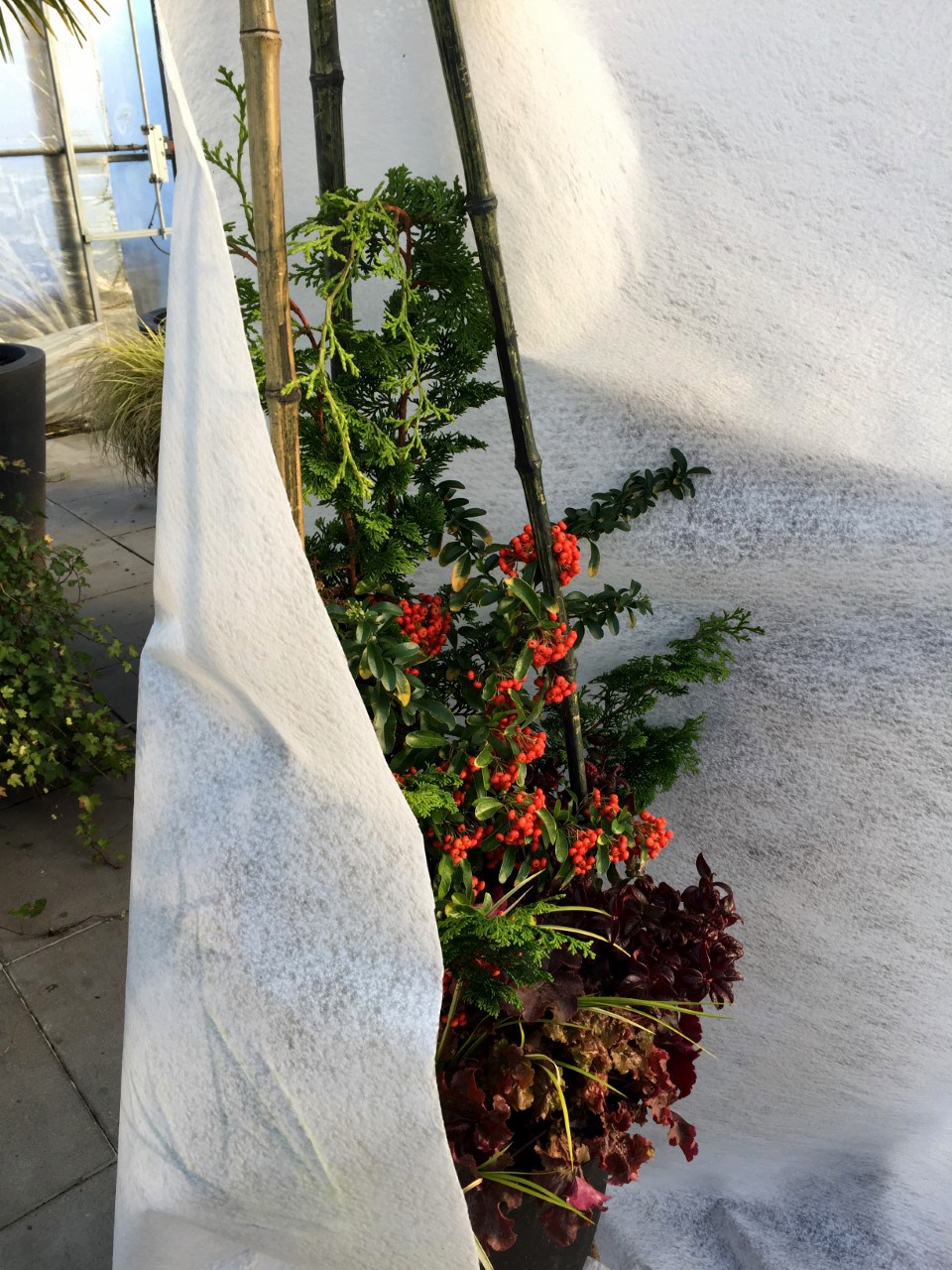The following column was submitted to the Tri-City News from Brian Minter — master gardener, best-selling author, Order of Canada recipient and co-owner of Minter Country Garden Store.
Our recent cold spell and severe wind can do a great deal of damage to our outdoor plants, especially after a mild fall. Harsh weather is a fact of gardening life, but we can take some steps to minimize the effects.
The first suggestion I would like to make pertains to hardiness. Most of us know which hardiness zone we live in and should be planting only those plants which will tolerate that zone.
Certainly, slight variations will exist, but as a rule of thumb, plants zoned for your region will take the worst most winters have to offer. If you don't know your zone, you can easily find out from a local nursery. From experience, however, I know that no gardener worth her or his salt pays much attention to zones. Virtually all gardeners set out plants they know are not hardy in their region, but they insist that, with a little extra protection, these plants will survive.
Unfortunately, that protection is not always applied until it's too late.
There are some techniques that can add a few degrees of hardiness to many plants. One thing I noticed after an early November cold spell a few years ago was that those plants growing in very well-drained, sandy soil survived the cold with the least amount of damage. It seems that if a plant's roots have had to work harder for moisture and food, the plant is tougher and stops growing earlier in the fall.
Consequently, its branches and buds become dormant earlier, preventing severe damage from the cold. These plants also tend to stay dormant longer and suffer far less root damage because, with a lower moisture content, the soil is not moved about so much by frost. Planting all your plants, particularly the softer ones, in well-draining soil that has had fine bark mulch added in, is a sure way to toughen them up.
A further protection for more tender plants is a good mulching with fir or hemlock bark mulch or with sawdust. Mulching makes an incredible difference both in summer and winter. It retains critical moisture in summer and adds a layer of insulation in winter. This is especially true for roses.
Immediately after a cold spell when the temperature is on the rise and the frost is coming out of the ground, it's essential to get moisture back into our plants. Rain or wet snow are great, but if it’s sunny, soak the living daylights out of the foliage of broadleaved plants and thoroughly penetrate the root systems with water. Moisture can really make a difference to the amount of damage to so many plants.
Desiccation from cold, drying winter winds is another major problem. As if the severe wind on our poor broadleaved plants, like aucubas, photinias, rhododendrons and azaleas, is not bad enough, winter sunshine can also burn them. Not only is it important to create wind breaks around our plants, it's also essential to protect them from warm, late winter sun.
Our containers are the most susceptible to cold because both the plants and roots are exposed to cold winter winds. Setting them out of the wind and doing a wraparound of insulating material, like N-Sulate, really helps. At this point, keep them moist when the thaw begins, and you’ll soon know how much damage was done.
First and foremost, never let your guard down. A couple of years of mild winters can lull us into winter complacency. Make sure you always prepare the appropriate winter protection.
Secondly, as bad as it may seem, don’t assume the worst until new growth appears, or doesn’t appear, in the spring. Only when the weather warms up will you know for sure if your plants are OK.
Finally, cold winters are just a part of the gardening cycle.
Passionate gardeners will keep on planting tender plants — losing a few is part of the learning curve we all go through.




